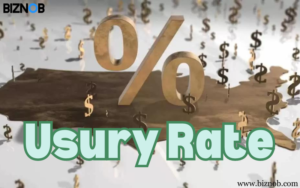What are uncollected funds?
The phrase “uncollected funds” describes a part of a check deposit that is not accessible to the account holder depositing until the bank confirms that the depositor’s bank has received the monies connected with the deposit.
The money is collected after the deposited check exits the banking system. They then form a portion of the account holder’s balance that is accessible.
How Uncollected Money Is Managed
Deposits held in escrow until the depositor’s bank clears them are the source of uncollected money.
The Procedure for Check Clearing
The bank has to confirm that it got the deposited funds from the bank that sent the payee’s check. Until then, deposits show as “pending,” and the bank refers to the money as uncollected funds, abbreviated as “UF” or “UCF.”
A hold on most of a giant check placed into an account is applicable. As long as the depositor is in good standing with the bank, a part is usually made accessible right away.
Fee for Uncollected Funds
An uncollected money charge often follows a bounced check against an account with uncollected funds. This fee, also called a UCF fee, frequently corresponds to the bank’s non-sufficient funds (NSF) charge. Some banks imposed NSF and UCF costs as of 2023; these penalties varied from $30 to $40. Nonetheless, many institutions have decided to discontinue NSF fees.
There are no uncollected money costs if checks are issued against the available checking account amount.
Advantages of Unclaimed Money
Fraud Defense
Though uncollected money is a common source of complaints, it shields banks and their clients from certain forms of fraud.
It would be feasible for someone to write a bad check on one bank account, deposit it in another, and then take out purportedly available cash if there were no uncollected monies.
Because this method is so straightforward, it frequently tempts law-abiding people in need of money—possibly even those who are about to declare bankruptcy. Crooks may coerce blameless individuals into participating in these scams before demanding payment.
Help with Money Management
A bank may notify clients that a check has been received, but the funds are not yet accessible by using uncollected funds. Clients may view the uncollected funds phase as a brief waiting period that encourages responsible financial behavior and keeps them from taking out needless overdrafts.
For instance, a consumer could deposit a check by mailing it to the bank. When it receives it, the bank will mark a portion of the check as uncollected funds.
Customers will know that the bank received the deposit when they check their online banking account and see the status of uncollected funds. Once the funds have cleared, the customer can return later to check. The customer knows they can use the funds as needed if they are made available.
Quick-Paying Investments
Banks use these funds for short-term investments that can increase their income and returns during the uncollected funds hold period.
Criticism Regarding Uncollected Money
Fees Are Inequitable
Customers frequently view uncollected fund charges as unfair. Many people naturally believe that when they deposit checks, the money is immediately available to spend at the bank. From this perspective, the bank profits surreptitiously from an uncollected fund charge.
The Fees Are Too High
The claim that UCF fees are exorbitant is likewise well-founded. The fact that they can be the same amount as NSF fees is particularly annoying.
A person writing a lousy check typically has no reason to believe it will clear, while someone with uncollected funds might think their money is available.
Furthermore, there might be little or nothing in an account with insufficient funds, leaving the bank with a loss and needing to collect. On the other hand, once the uncollected funds are cleared, which typically occurs in a few days, it is simple for the bank to deduct UCF fees from them.
Hold Periods Are Uncertain
Since uncollected funds are only available after some time, when do they become available? In a day? In a week? Check-clearing times can be hard to determine and a source of customer frustration. Granted, this was more of an issue before online banking made it easier to determine the status of deposited checks. Still, not everyone banks online, so indeterminate holding periods may continue to be an issue for some.
The best way to avoid uncollected funds charges (UCF fees) is to check your account balance online after depositing. Ensure the deposit is part of the available balance rather than uncollected funds before spending it.
Examples of Uncollected Funds
Example 1: Jack, a longtime customer of Hometown Community Bank, deposits a $1,000 check on Monday. $100 is available for withdrawal right away. However, the $900 balance is designated as uncollected funds, so Jack must wait until the check clears later in the week to draw upon that amount. Jack will incur an uncollected funds charge if he tries to write a check against the balance that has yet to clear.
Example 2: Christine runs a small graphic design company. A new client sends her a check for services rendered. Christine deposits the check into the company’s business account, knowing the money is considered uncollected and will be available later. Because the client’s bank isn’t local, it takes a day longer than usual for the check to clear. But business is good, and she can use existing funds in the account for her spending needs until the uncollected funds are verified, collected, and available to her.
Uncollected Funds vs. Insufficient Funds
It is crucial to make a distinction between uncollected funds and insufficient funds. Unlike uncollected funds, an account with insufficient funds will not show a deposit pending. Such an account needs more money to meet demands against it.
Writing a check against an account with insufficient money will always result in a bounced check and a fine. Those who intentionally write a check against an account with insufficient money may commit a felony.
On the other hand, writing a check against an account with uncollected funds can work if the check is not cashed until after the uncollected funds have cleared.
How Long Can Banks Put a Hold on Uncollected Funds?
According to the U.S. Office of the Comptroller, banks must make $225 from your deposit accessible the day after you make the deposit. And then, generally, the uncollected cash should be accessible on the second business day after the deposit. Holds may be prolonged if there are grounds for concern about the funds, the account holder, or the source of the money for deposit.
What does uncollected mean?
It alludes to the fact that an account holder has made a bank deposit but has not yet received—collected—the money from the bank that issued the check for the deposit. Before making money accessible to customers, financial institutions must validate or clear the movement of money, even when it occurs electronically.
Is writing a check on an account with uncollected funds a crime?
Not if there is accessible money in the account to pay the check. And if a check fails, most accountholders will be charged a UCF fee rather than a felony.
The Bottom Line
Uncollected funds are the component of any bank deposit that is generally quarantined for a short period and unavailable for use by a bank client until the deposit clears.
The uncollected funds phase aims to verify that the money associated with a deposited check gets into the bank account before it is spent. This strategy may safeguard banks and consumers against fraud, work as an essential money management tool for accountholders, and offer banks a short-term investment window for increased profits.
Conclusion
- Uncollected monies are the unavailable fraction of a bank deposit the bank is clearing.
- The time that funds stay inaccessible helps banks guarantee that a deposit via check has been validated and the exact amount of money has been received or collected.
- Although there are frequent complaints about uncollected payments, the practice protects banks and their clients against specific sorts of fraud.
- A check drawn against an account with uncollected (and unavailable) money that is cashed and bounces often results in an uncollected funds fee.
- Bank clients often see uncollected money costs as being unjust and unreasonable.
















































